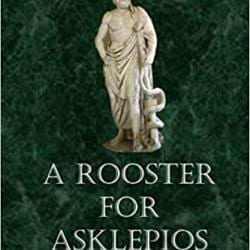Great article to read by Andrew Perrin, “Greek Gospels and Aramaic Dead Sea Scrolls: Compositional, Conceptual, and Cultural Intersections,” Open Theology 6.1 (2020): Here’s the Abstract: The Aramaic Dead Sea Scrolls expanded the scope of authoritative and parascriptural traditions that reimagine the lives and times of ancestral figures. In several cases, these Aramaic writings include birth notices or narratives. The Genesis Apocryphon and Aramaic Levi Document portray the patriarchs receiving divine revelations regarding the genealogy and destiny of their progeny. Parents in... Read more
















